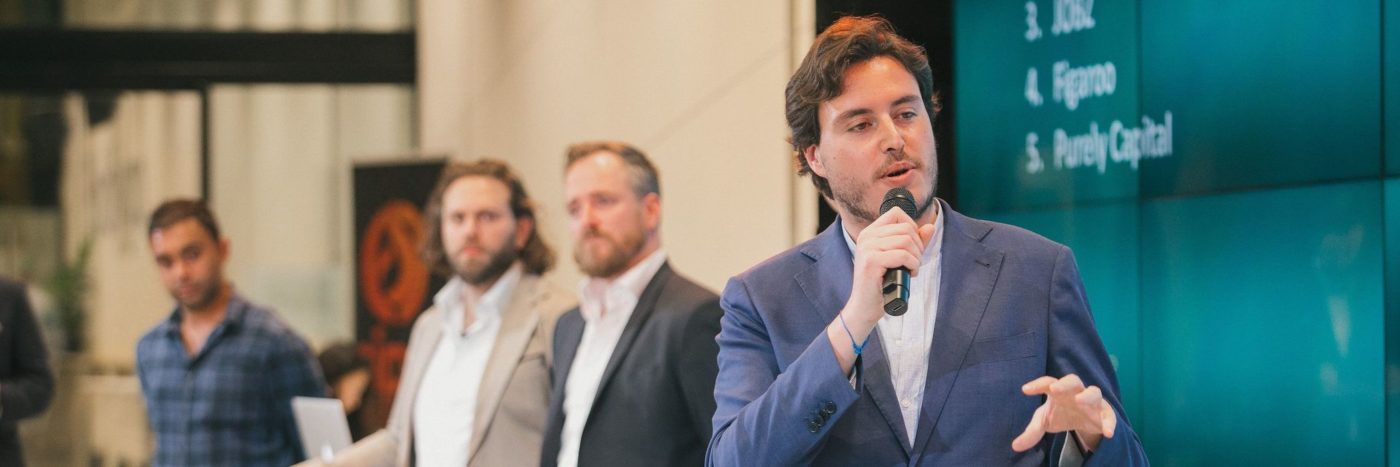
Recently, Founders Edge had the pleasure of speaking with Nick Desai, the CEO and Co-founder of Los Angeles-based startup Heal. Heal specializes in primary care doctor house calls. Heal´s model of patient-centered healthcare helps doctors save money while increasing the comfort and quality of care given to patients. Nearing its fifth anniversary, the company has raised over $71 million in capital.
But Nick is no stranger to venture capital funding. Heal marks his fourth venture-funded startup since 1998. And over the course of his career he has raised a total of $175 million in capital. With each of these startups, his passion has always been to use technology to improve the human condition. Nick believes that the purpose of technology should be to make our lives better. It should be the kind of technology you don’t have to learn.
Looking at companies like Amazon, Netflix and even Uber, all of them have one thing in common despite operating in very different industries. They’ve changed something to make it more convenient, and therefore disrupted an entire industry. Amazon makes it more convenient for you to have things delivered to your door versus going out to get them. Uber makes it easy for you to get transportation to where you want to go. Netflix was a lot easier to do than renting a movie from Blockbuster down the street.
Just as entire cities were made possible by the invention of the automobile, we can see in ten or twenty years, the layout of urban design completely changed because driverless cars and drones are delivering items seamlessly from the warehouse to your door.
In these respects, Heal is making a similar shift in how healthcare is handled. By bringing the doctor to the patient, operating costs of healthcare are cut by 65% while quality goes up. And this model applies to preventative as well as urgent care. Patients are less exposed to communicable disease. They are comfortable. It’s convenient for them and affordable.
But how was Nick able to grow Heal into a million-dollar company? There’s an eternal catch-22 in VC funding that in order to have the best talent on board to execute your idea, you need money. In order to get the money, you have to have the talent and demonstrate the potential. So how do you proceed?
The First Dollar Challenge
Most venture capital funding rounds start off talking about having gone to this VC or that VC and now you have term sheets in hand, so which is the best deal and should you take the better valuation or what? Wait— what if you don’t have a VC? What if you don’t know your A round from your B round? What if you don’t even have a dollar?
This is where Nick suggests the “first dollar challenge”.
Let’s say you have an idea. You have some revenue. You’ve bootstrapped it yourself or perhaps you’re selling the concept to help raise that first dollar of investment capital. In short:
“You have nothing, yet you’re expected to have everything.”
Let’s face it. No one person has all the skills needed to run a company. You need truly great people. Find just one person who believes in your vision as much as you do and who possesses the skills you don’t. Get that person on board, because raising money and running a company are both a full-time job.
The Real Way to Approach a VC (And Be Successful)
In the VC world, it’s easier to raise money on an idea that you can present well. According to Nick, you should take your idea and turn it into a pitch deck or a Powerpoint. Have a financial model in place that’s realistic and not full of fluff. Most importantly, raise money that you need in order to achieve real milestones.
Perhaps the most helpful step in this stage of the game is that these days, everyone’s contact information is everywhere. You can easily go to a website and email any venture capitalist. You can read about them to see if it’s a good fit, then email them yourself. Don’t chase them down on Twitter, Facebook or LinkedIn.
Now, although this is a much easier process than it was ten or twenty years ago, here’s the catch: the email you send them has to fit within a single screen of your mobile phone. You may feel the entrepreneurial urge to tell the whole story, but try to rein it in. Introduce yourself, explain what you do, why you’re seeking funding and most importantly, ask something very specific— in the vein of, “I’m going to be in your area in a week or so, and I’d love to chat with you about this project in more detail. Is 1pm a good time for you?”
They’re either going to refuse outright saying they’re not interested, they’ve already got plans, or they’ll have their secretary pencil you in. With that being said, you have to be used to rejection. If you ask twenty VCs for funding, you’ll probably get 20 “no’s.” Get used to a number like 1 in 40 because that can very well be what it takes.
I’ve Got Their Attention, Now What?
It’s very common for VCs to tell you to “come back” when your company is this, or that, or has this feature or that feature. Ignore it. This is your vision. And you’ll be glad to know that small ideas aren’t any easier to fund than big ideas— so don’t be afraid to think big. And when you think big, back it up with numbers. Public math sells.
Nick tells us that you don’t just throw out numbers to try and impress some investors somewhere. You’ve got to believe in the numbers as much as you believe in the idea. And finally, you’re going to have to decide if you’re a leader or a manager. There’s nothing wrong with being one or the other, but you can’t be both.
A leader is someone who’s good at getting people to “buy in” to their vision. They’re good at inspiring and getting people to go where they want them to go. A manager is the one who draws the maps and sets up the milestones. They’re the “how” in the whole equation.
Learn to Love Hard Work
Finally, learn to love the hard work that goes into founding a company. Don’t slog through hard work as if it’s a series of challenges you’ve got to fight through in order to reach a pot of gold at the end, because you’ll be setting yourself up for failure. You’ll know that you truly do love the hard work if you’d rather spend time working on your company than going out with your friends to bars at 3 a.m. because you believe that much in your idea and its potential.
That’s what separates the leaders from the followers, and the successful startups from the forgotten ones.






